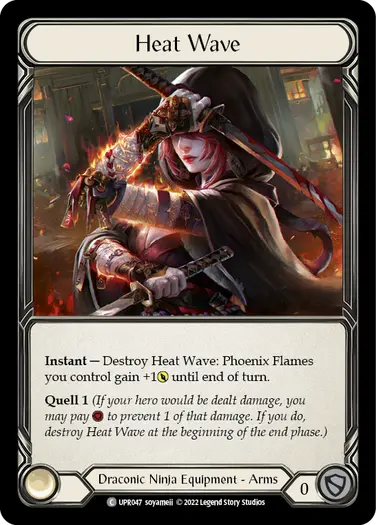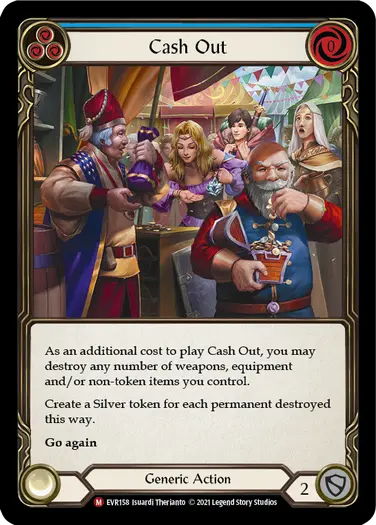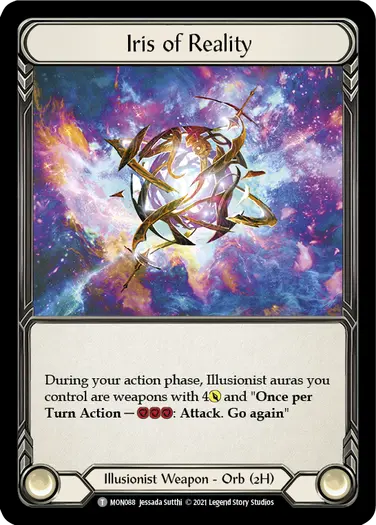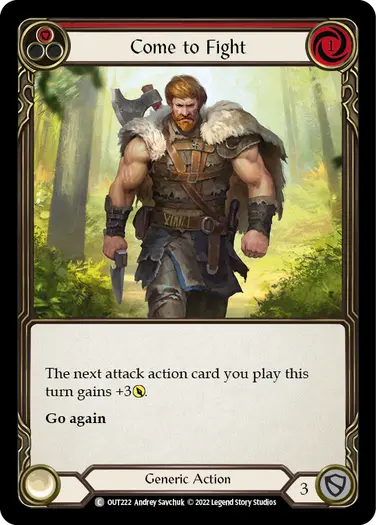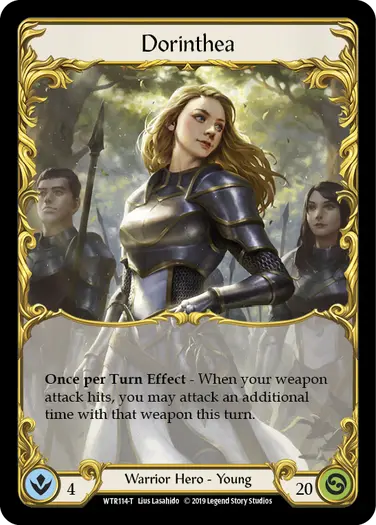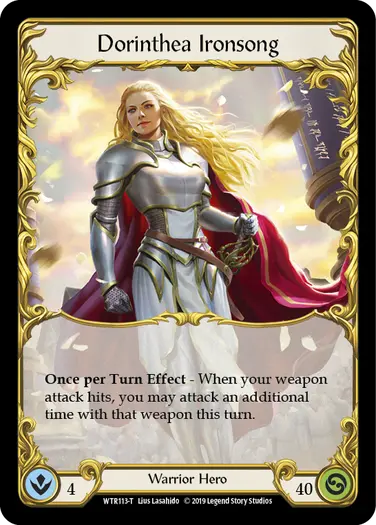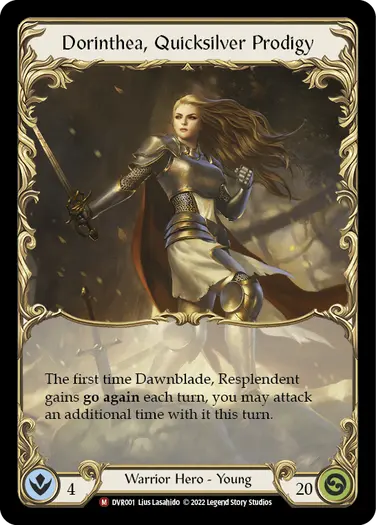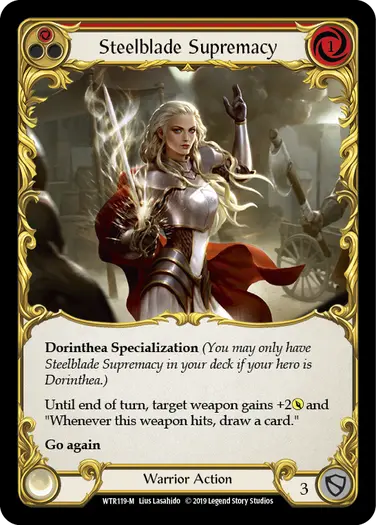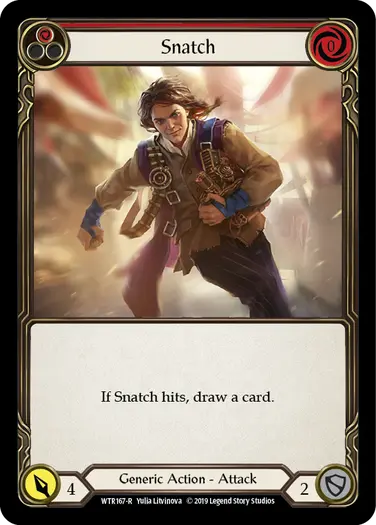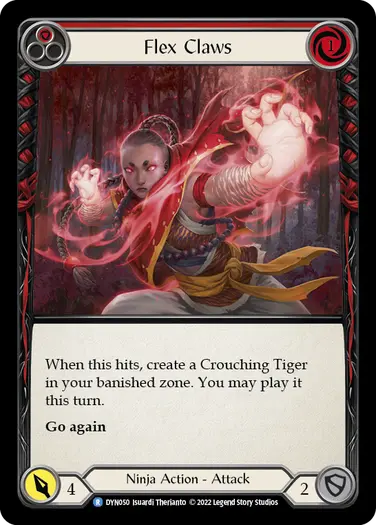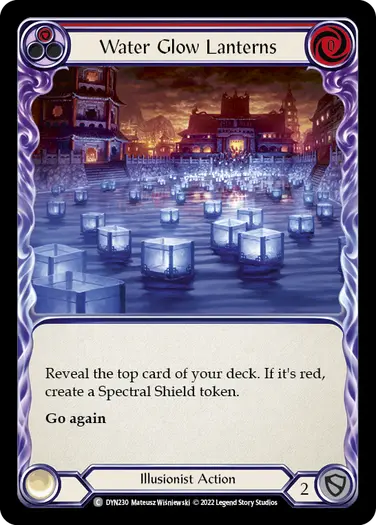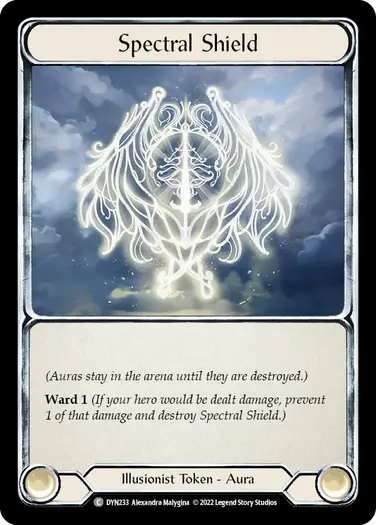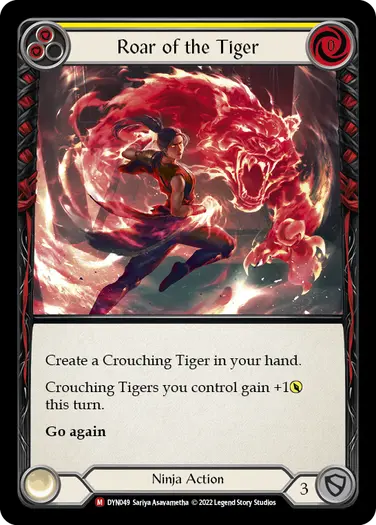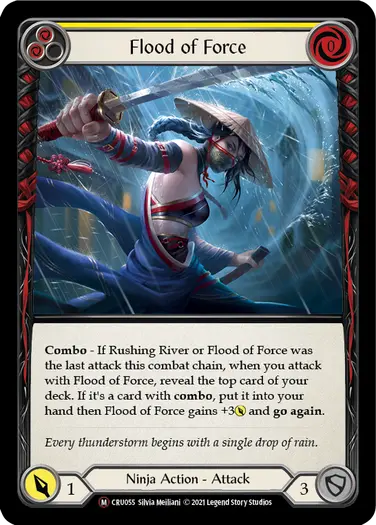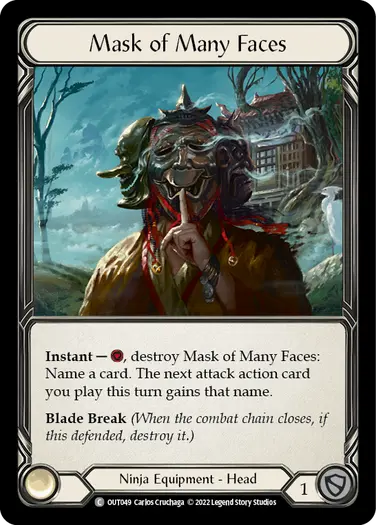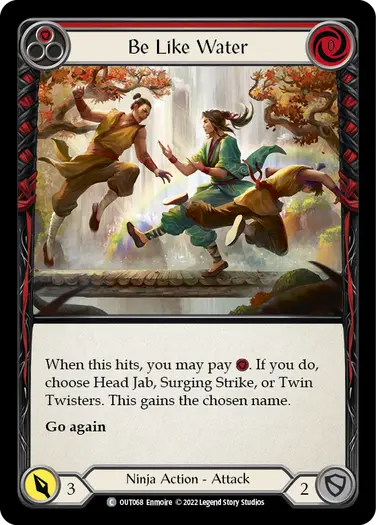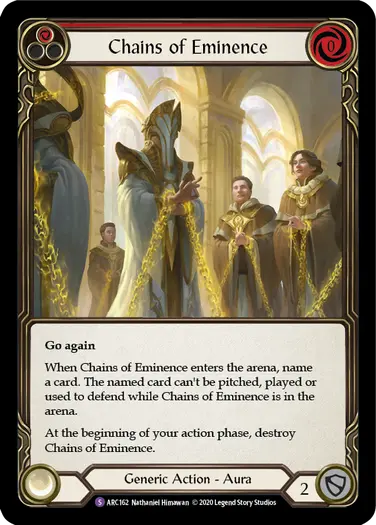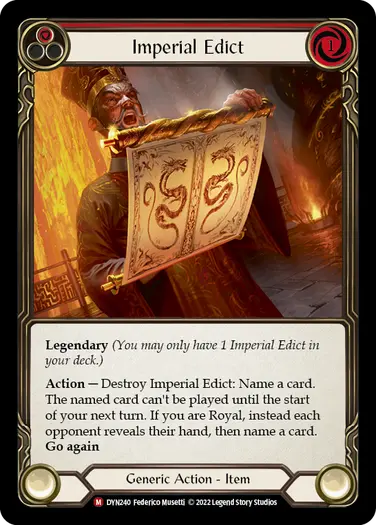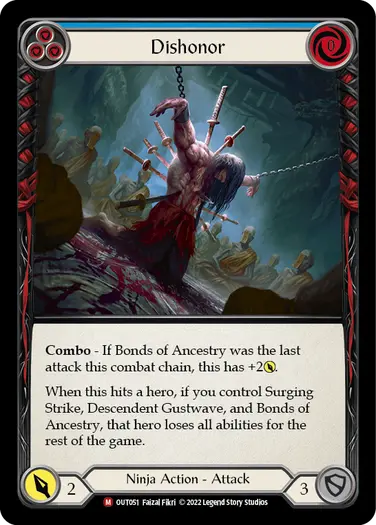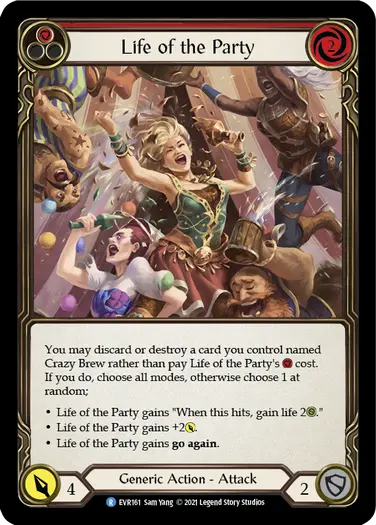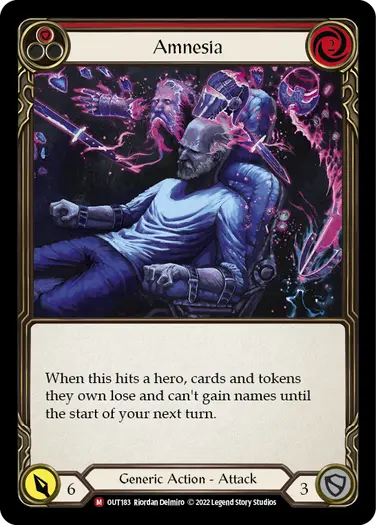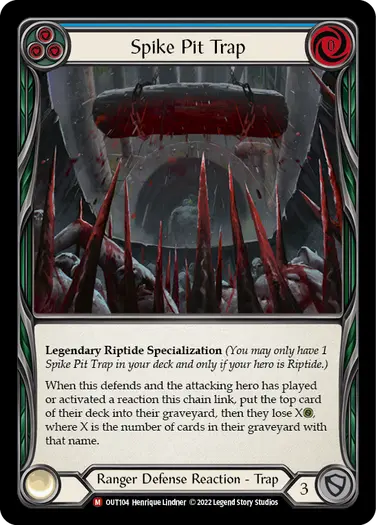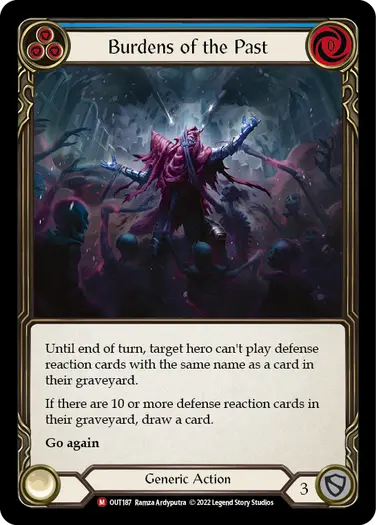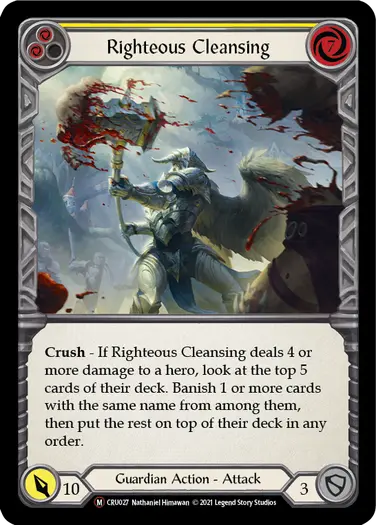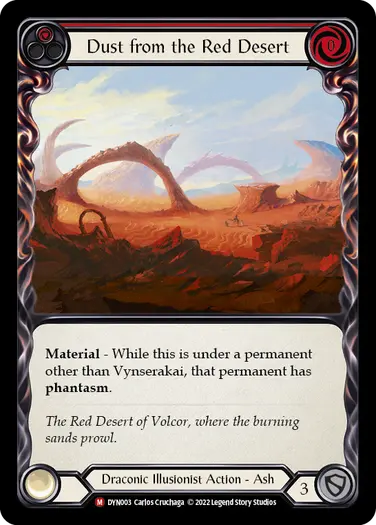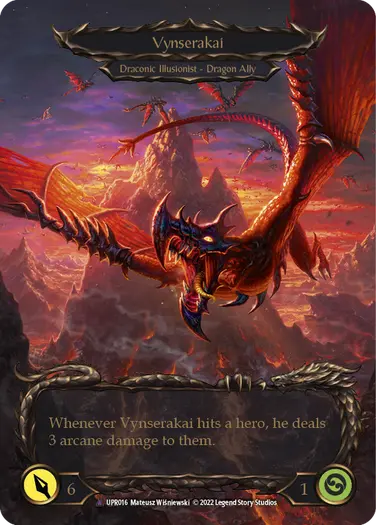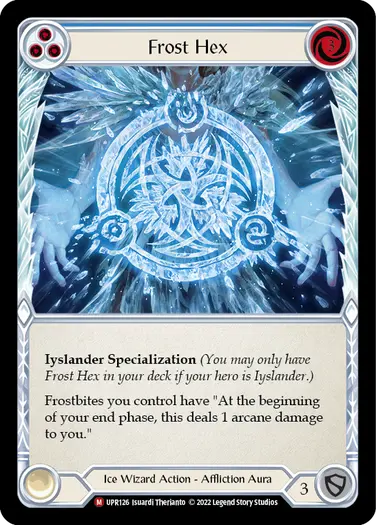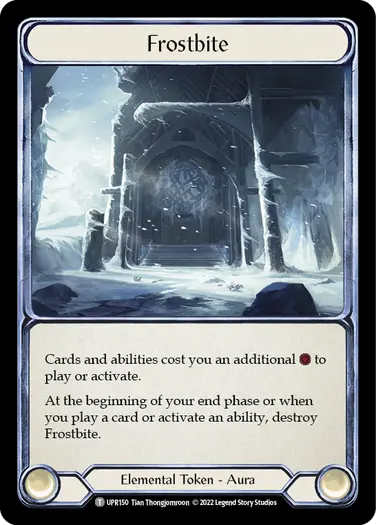The final installment of rules reprise for Outsiders from rules and policy manager Joshua Scott. Today we’re talking about names on cards and tokens in Flesh and Blood, and doing a deep dive into their interactions with the new card: Amnesia.
What is a name?
A name is one of the many properties an object (i.e. a card or token) can have. Other properties include: pitch, color strip, cost, power, defense, intellect, life, abilities, and types (classes/talents, types, subtypes). It’s important to note that an object’s name is completely distinct from its types (e.g. Ash).
An object’s name is relevant when the text of an effect wants to refer to another object. Effects can refer to objects by using any of its “object identities”, which may include but are not limited to the object’s name, type, subtype, and whether it's a card or a token.
- Name: Phoenix Flames you control […]
- Type: […] any number of weapons, equipment and/or […]
- Subtype: […] Illusionist auras you control […]
- Card/token: The next attack action card you play […]
How do short names (monikers) work?
Some abilities and effects use the short name (moniker) of a card or token instead of its full name. This allows similar cards and tokens with personal names to be referred to with a single name. For example, the specialization abilities use a hero’s moniker to refer to both the young and non-young version of a hero, or even alternative versions of that hero with different abilities.
Monikers are derived from, and are used similarly to names. If a card or token loses its name, it also loses its moniker. Note that only cards and tokens with personal names have monikers. This typically includes heroes, weapons, and some allies (e.g. “Blasmophet, the Soul Harvester” but not “Aether Ashwing”).
What does it mean when a card name is used?
It depends. Using names in a textbox can generally be categorized into three different ways:
- Self-reference (e.g. this)
- Object definition (e.g. create X token)
- Object identification (e.g. card with the name X)
Self-references
Cards and tokens that use their own name to refer to themselves are self-references. These are completely interchangeable with “this” (ignoring grammar), and always refer to their source (i.e. the card/token that they are on) regardless of if they have a name or not. Using the term “this” instead of the source’s name is becoming more common on Flesh and Blood cards as card text continues to mature.
When an effect (on the card Snatch) says:
> When Snatch hits, draw a card.
What it really means is:
> When this hits, draw a card.
If cards and tokens you own lose and can’t gain names (e.g. Amnesia), it does not affect self-references. Be careful though because some cards use a name as an object identifier, even though it has the same name (e.g. Flood of Force) – in these cases, it is not self-referencing.
Object definition
Effects that create cards or tokens use the name as shorthand for the definitions of objects they want to create. These are completely interchangeable with the full definition of the card or token that they are creating.
When an effect says:
> Create a Spectral Shield token
What it really means is:
> Create a token with the name “Spectral Shield”, the supertype Illusionist, the subtype aura, and the static ability “Ward 1”.
If cards and tokens you own lose and can’t gain names (e.g. Amnesia), it does not affect token / card definitions used in creating those objects. However, it is worth noting that after those objects are created they would lose and can’t gain names until the effect expires.
Object identification
Finally, when card text uses a name as a form of object identity, it refers to objects with that specific name.
When an effect says:
> Crouching Tigers you control gain +1{p} this turn.
What it means is:
> Objects you control with the name Crouching Tiger gain +1{p} this turn.
If cards and tokens you own lose and can’t gain names (e.g. Amnesia), it affects object identification, and effects that use it will fail to find/identify objects with any specified names. Some cards use a name as an object identifier, even though it has the same name (e.g. Flood of Force).
What kind of things are you allowed to name?
When you’re asked to name a card, you must declare the name of a card that both exists and is legal in the format you’re playing.
You may not declare the name of a token, unless there is also a card with that name. Some cards have token-rarity, but are not tokens (e.g. Phoenix Flame, Crouching Tiger). You may name these cards because there is a distinct difference between token-rarity cards and tokens.
You may identify a card by declaring its name (or name and pitch), or you may provide a description or partial name, as long as it could only reasonably apply to one card. Both you and your opponent are responsible for ensuring there is a mutual understanding of what card is being referred to, and the opponent is responsible for asking for clarification if they think that your description or partial name is ambiguous.
If you’re struggling to remember the name of a particular card, you may request aid from a Judge. Judges may provide you with card information for any card in the game, provided you can identify it. A Judge can not assist you with card information if they think you’ve provided an ambiguous description, or if you’re looking for the names of all cards that match a certain description.
Tyler is playing as Katsu and their plan this turn is to play Head Jab (giving it another name), hit with Head Jab, trigger Katsu, banish Whelming Gustwave, then play it to get the combo effect. Tyler activates and resolves Mask of Many Faces, but briefly forgets the name of the card that Whelming Gustwave needs to satisfy the combo condition. Tyler calls a judge for assistance and asks them for the name of “The Ninja attack action card that Whelming Gustwave combos from.” Because Tyler is unambiguously referring to a single card (or cycle of cards), the Judge tells them the name is Surging Strike.
What does it mean for a card to gain a name?
When a card gains a name, it gains the name in addition to any existing names it has. This means that a card can be identified by either name. If a card has two, it does not have to be identified with both of its names, just one of them. Effects that apply to cards with a given name do not apply twice if an object has two same names.
When a card moves to a zone that’s not in the arena (hand, graveyard, banished zone, deck, etc.) it basically “resets” and loses any effects that apply to it, including any names that it would have gained.
Tyler attacks Nic with Surging Strike. After the chain link resolves, Tyler activates and resolves Mask of Many Faces naming “Bonds of Ancestry”. Tyler then attacks Nic with Descendent Gustwave, and again with Dishonor. Because the last attack has the name “Bonds of Ancestry” and Tyler controls objects with the names “Surging Strike”, “Descendent Gustwave”, and “Bonds of Ancestry”, the additional condition on Dishonor is met.
How does Amnesia work?
Amnesia’s effect states:
> When this hits a hero, cards and tokens they own lose and can't gain names until the start of your next turn.
“Cards and tokens you own” means cards that are part of your deck or card-pool, and cards and tokens that you’ve created from effects. This also includes cards and tokens that enter the arena under the control of your opponent (e.g. Frost Hex and Frostbite).
When a card or token loses and can’t gain a name, it essentially becomes nameless. For effects that use card names, this affects object identification (referencing another object by name), but does not affect self-references (referring to itself) or object creation (creating something by name).
Aside from straight-forward examples, like cards with combo and references to Phoenix Flame or Crouching Tiger, here are some other cases with Amnesia worth considering:
Spike Pit Trap
Amnesia makes Spike Pit Trap and Burdens of the Past significantly weaker. Both cards have effects that specifically look for cards in your graveyard with the same name as another card. If the opponent is affected by Amnesia, the cards in their graveyard (which they own) don’t have names, so Spike Pit Trap and Burdens of the Past will not find any cards with the same name as any other card.
Chains of Eminence
Amnesia renders Chains of Eminence somewhat useless. Because Chains of Eminence creates an effect that restricts the use of a card based on its name (object identification), and because your cards don’t have names, the cards you own are unaffected by these restrictions. However, it’s important to note that Chains of Eminence affects all players (including yourself), and not just opposing players.
Righteous Cleansing
Amnesia renders Righteous Cleansing somewhat useless. If a player is affected by Amnesia, and you trigger Righteous Cleansing’s crush effect on them, you would still look at the top 5 cards of their deck, but you would not banish any cards because none of them have names. When a card doesn’t have a name, there’s nothing to compare, so the effect simply fails.
Dust + Dragons
Amnesia renders the Dynasty Dust cards somewhat useless. Each of the Dust cards refers to the permanent it is under by name (object identification). If that permanent loses its name, the Dust no longer recognizes it as an exception to the rules and gives it phantasm just like any other Ash would (for as long as Amnesia’s effect is applied).
Frost Hex
Frost Hex is a very interesting case. If you are the owner of the Frost Hex and Frostbites under your opponents control and you’re affected by Amnesia, Frost Hex fails to give the Frostbites the “deal 1 arcane damage” triggered ability because it refers to them by name (object identification). This is because you own the Frostbites, even though your opponent controls them, and therefore they lose and can’t gain names and the Frost Hex can’t give them the triggered ability.
However, if you're on the other end (you control the Frost Hex and Frostbites but don’t own them) Amnesia’s effect will NOT affect the typical Frost Hex and Frostbite interaction because you don’t own those cards or tokens.
